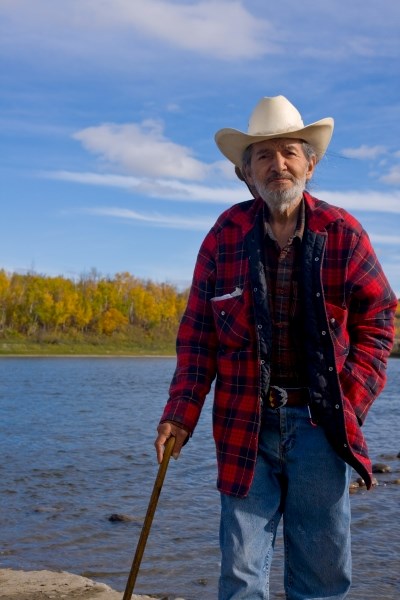Leading names from the group dedicated to the environmental protection of the Athabasca watershed were arrested in Ottawa early last week.
Keepers of the Athabasca Watershed Council chairs Roland Woodward and Julie Burke were taken into custody for a short period of time after crossing a barricade leading up to Parliament Hill during a protest against the proposed Keystone XL pipeline that is being hotly debated in both Canada and the United States.
Woodward, a member of the Fort McMurray First Nation, was one of the first to cross the line on Monday, sporting a signature cane and white cowboy hat with an eagle feather.
He joined over 400 Canadians at the capital to urge members of parliament to end pipeline expansions and stop the uncontrolled expansion of Alberta’s oilsands region.
He and Burke were two of around 100 individuals arrested for trespassing at the Hill.
Woodward was quick to show off the $65 ticket he received from police, adding that the whole ordeal was quite civil. After he was processed at a station five blocks away from the protests, he returned to watch from across the road.
Although TransCanada’s Corporation’s proposed $7 billion Keystone XL pipeline project (aiming to send 1.1 million barrels of diluted bitumen every day from Alberta oilsands to refineries on the Texas Gulf Coast) was the target of the day’s protests, it is seen as more of a symptom of a deeper problem.
Harvey Scott, one of the founders of Keepers of the Athabasca, explained their case.
“Overall this pipeline is no worse than others, the key issue is the rate of development of oilsands,” he said.
If corporations are to build pipelines to American and overseas markets, the demand for Alberta oil will increase, driving further land-use permits and development in the region, he explained.
“We already have far too many projects that aren’t properly monitored,” he said. “And to fill pipelines we’ll need many more.”
That unfettered development has had dramatic impacts on communities around the region.
Woodward said that Aboriginal people in nearby Fort McKay and Fort Chipewyan have had their community health compromised, citing high cancer rates.
In the Athabasca Delta, a traditional source of food for the people of Fort Chipewyan, instances of tumour-laden fish are being studied by academics from the University of Manitoba.
Most recently, the Alberta government committed to a community health study in Fort McKay to determine the impact to those living close to the developments.
Woodward asked why the government would be so committed to driving development when the long-term effects are still unknown.
He added that the amount of water being pulled out of the Athabasca is also an issue, as a potential doubling of extraction capacity would mean a further strain on the basin and its ecology.
If use remains stable at two to four barrels of water needed per one barrel of oil produced, future use of basin water could be upped to six to twelve million barrels per year, he explained.
The Keepers’ answer to mitigating those risks is a moratorium on any further development of the region until the environmental impacts are better understood.
Scott said the “deposits could benefit people for many years if development was planned out” but that the current economic model is driven by Big Oil interests at the expense of the local people and the environment.
The USA’s State Department recently released an environmental assessment that, after three years of study, concluded Keystone XL would have minimal environmental impact.
The final decision on the project falls on the lap of president Barack Obama and is expected by the end of the year.



